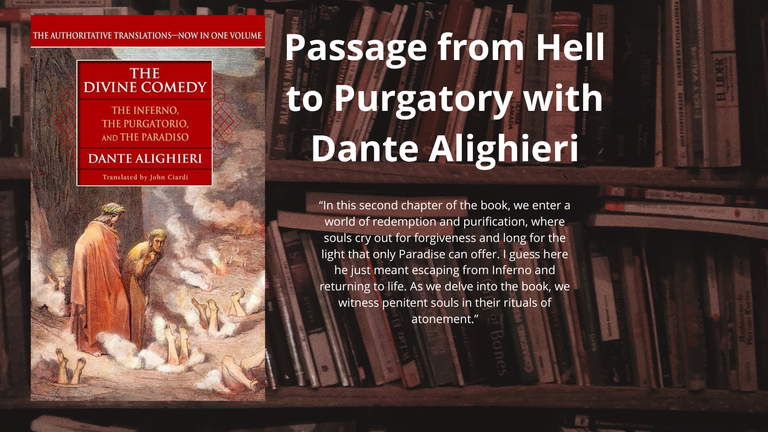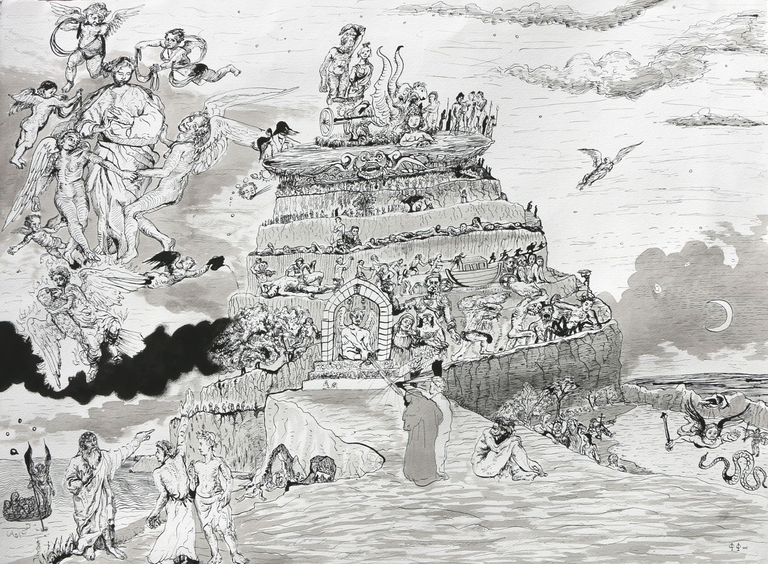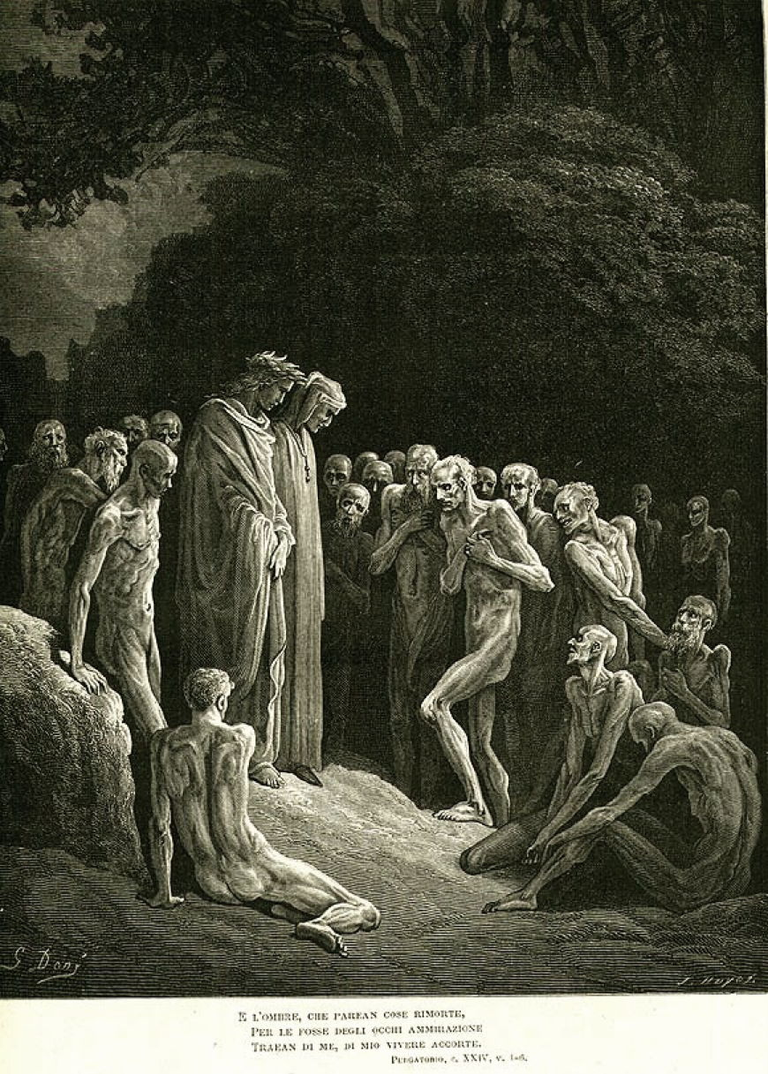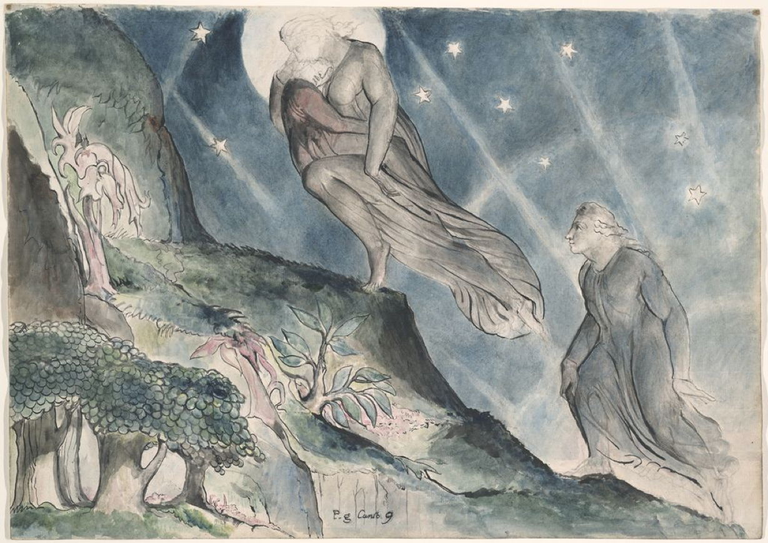
If you haven't visited the first part yet: Descending into Inferno, A Literary Journey through the Human Soul | MINI-REVIEW BOOK The Inferno of Dante: Divine Comedy
Still with the flames of Inferno echoing in our minds (perhaps that was a bit heavy) after reviewing the first part titled The Divine Comedy, we are now led by Dante on a journey through the chapter on Purgatory.
The Inferno of Dante: Part II - Purgatory
In this second chapter of the book, we enter a world of redemption and purification, where souls cry out for forgiveness and long for the light that only Paradise can offer. I guess here he just meant escaping from Inferno and returning to life. As we delve into the book, we witness penitent souls in their rituals of atonement. Here, the burden of sin is carried not in the flames of torment, but in the tears of contrition and the sighs of hope. Each step is an inner journey, a confrontation with past sins and a rebirth towards purity.

It seems that, unlike the first part where Inferno is defined as eternal suffering, here, although suffering still exists, it is not exactly eternal. There are still chances for redemption and repentance of their sins. It's strange and confusing to understand this part, as Dante and his guide, Virgil, progress through the circles of Purgatory, encountering familiar figures and touching stories of redemption. From the proud to the humble, from the rich to the poor, each soul finds its place on the path of purification. It seems like a mountain Dante is climbing, as he vividly describes it as "with every ascent, the views become more dazzling".

With each moment of reading, you can see that although the punishment for sins is not eternal, it is still severe for the sinners. Just like in the first part, in Inferno, here too there are divisions of sins by levels, from worst to less severe. I don't know if I could call what is presented a "lesser sin". I found it intriguing the account that "they still have hope of redemption". Does that mean it's not entirely guaranteed to them? I don't want to give any spoilers for those who haven't fully read this masterpiece, but I can say that perhaps the worst sin presented might be gluttony.

It is also in this part that we truly get to know Dante's beloved, possibly inspired by Beatrice, definitely so. I was a bit confused at some parts, sometimes it seems like Beatrice might just be Dante's imagination to guide him to God's mercy and salvation. However, at other times, it is explicit that she was at some point Dante's great love, possibly the main reason for this journey to Inferno. It takes reading and rereading some passages and trying to fit them into the entire plot presented, which is fantastic.

In the next post, I'll be giving a brief review of the final chapter, titled Paradise. I'd like to delve more into this part of Purgatory, but I could easily end up giving away spoilers about something. Maybe that's how a small review and book recommendation works.


